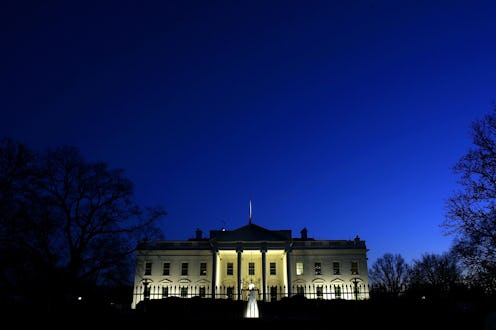News
Try Again, British Embassy...
Uh-oh. Another joke tweet gone wrong — or did it? On Sunday, the British Embassy tweeted about burning the White House 200 years ago during the War of 1812. Despite the violent memory, the tweet was in no way meant as a malicious taunt — in fact, the British Embassy posted it to commemorate the everlasting peace that has remained between the two countries since then. But since this is Twitter, where emotions are known to run high, two camps have formed: the furious and the are-you-serious?
A bit of background: On Aug. 24, 1814, amid the War of 1812, after defeating the Americans in the Battle of Bladensburg, British troops occupied Washington, D.C. and set fire to prominent buildings like the White House and the Capitol Building. The incident is known as The Burning of Washington. It's safe to assume that America was pretty sore about it then, but 200 years later, the U.S. and Great Britain have maintained healthy relations, even earning the diplomacy term "special relationship" to describe the close friendship. (Why isn't there an option for that on Facebook?)
Sooo, the British Embassy probably felt that it would be harmless to reference the British troops' act of arson in an anniversary tweet. The tweet includes a Twitpic of a cake topped with a mini White House surrounded by sparklers and flanked by an American flag and a British flag. Sounds like good times, right? Well, they were meant to be. The caption did not sit well with some: "Commemorating the 200th anniversary of burning the White House. Only sparklers this time!"
As quickly as the sparklers went out, the angry Twitter reactions came pouring in.
What these outraged Twitter users perhaps missed is that mere minutes before the joke tweet, the British Embassy posted this tweet:
So, clearly, the British are not trying to start something here. Nevertheless, the British Embassy felt pressured to apologize:
And almost as quickly as the offended chimed in, the defenders piped up to tell the critics to calm down. (See — Twitter is a veritable maelstrom of people's emotions.)
If the overly sensitive, er, offended parties are still not convinced that the joke was in pure jest, then maybe look to our own government for the proof. Marie Harf, deputy spokesperson for the U.S. State Department, tweeted:
Image: British Embassy/Twitter
